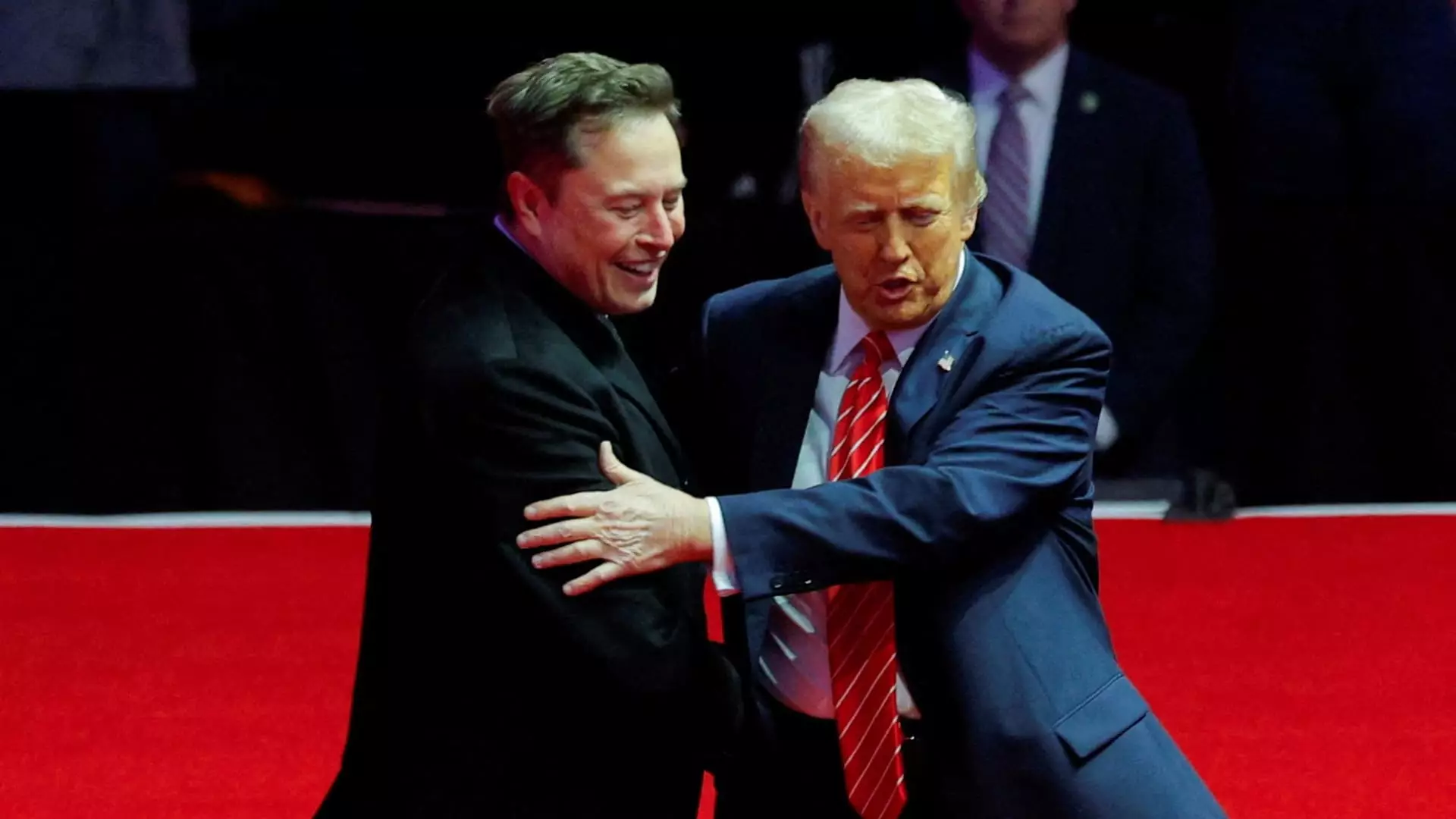Tesla’s recent fourth-quarter earnings report arrives at a critical juncture in American politics and corporate governance, coinciding with President Donald Trump’s inauguration for a second term. Elon Musk, the CEO of Tesla, is not just a figure in the world of electric vehicles; he has recently embraced a high-profile role within Trump’s Department of Government Efficiency (DOGE). This intersection of corporate leadership and political engagement has raised pertinent concerns among Tesla shareholders about the future direction of the company and its leadership’s priorities.
The crux of the matter lies in Musk’s substantial political involvement, which has sparked questions from shareholders during Tesla’s investor inquiry sessions. More than a hundred inquiries indicated a collective worry regarding Musk’s political commitments versus his responsibilities to Tesla—a company that has grown rapidly but must consistently innovate and address its product challenges. One investor directly questioned how Musk balances his time between his official duties in Washington and the critical needs of Tesla. This inquiry reflects broader uncertainties about whether Musk’s political activities might detract from his focus on the company—a concern that could negatively influence investor confidence and Tesla’s long-term growth trajectory.
Musk’s political contributions further expand this dilemma. With a substantial $270 million donated to support Trump and other Republican initiatives, investors are left to ponder the implications of such financial commitments on Tesla’s brand reputation and consumer perception. The tension between an influential CEO’s political aspirations and corporate governance cannot be understated, especially with a branding strategy increasingly aligned with consumer values centered around innovation, sustainability, and ethical leadership.
Research from Brand Finance offers alarming insights into the collateral damage of Musk’s political involvement on Tesla’s brand value, which plummeted by 26% over the past year, marking a significant decline in consumer recommendations or intentions to purchase the electric vehicles. This reduction in brand equity can be linked to Musk’s controversial public statements and actions that have alienated potential customers. A concerning aspect is that Musk not only engaged with far-right political elements within the United States but also offered support to similar ideologies in Germany, notably endorsing the Alternative for Germany (AfD) party, which has been criticized for its anti-immigrant stance.
Moreover, the response (or lack thereof) from Tesla regarding Musk’s public gestures and comments has raised eyebrows. An incident in which Musk used a gesture interpreted as a Nazi salute prompted backlash from historians and organizations like the Anti-Defamation League. The response from shareholders was immediate, questioning whether Tesla plans to address the fallout from such actions and how they might affect overall sales and consumer trust.
Musk’s reaction to allegations surrounding his public gestures has been dismissive, framing criticisms as unfounded “hoaxes.” This attitude may resonate within certain circles, but it alienates others, particularly shareholders looking for a leader who acknowledges the consequences of their actions. Investors expressed their desire for public accountability and sensitivity from Musk, indicating a clear expectation for leadership that embodies corporate responsibility and integrity. Such expectations are at odds with the image Musk seems to project—a dynamic that complicates Tesla’s narrative as a forward-thinking, socially responsible company.
Despite the vocal concerns from investors and the chilling effect of controversy on Tesla’s brand value, the company remains under no obligation to address these issues during their earnings calls. Historical precedent suggests that previous calls have often avoided political discussions—an approach that may serve to insulate the company from the volatility of political discourse but can also raise questions about transparency and investor relations.
As Tesla continues to operate within an increasingly politicized environment, the challenge remains: how to maintain corporate focus while navigating the complexities of political engagement. Investors are rightfully concerned that Musk’s multifaceted involvements may impede the company’s core mission to innovate and lead in the electric vehicle market. The importance of fostering a distinctive corporate identity, distinct from the vagaries of political battles, cannot be overstated in ensuring sustainable growth and preserving customer loyalty.
Tesla’s future hinges not only on its technological advancements but also on how it manages the delicate balance between corporate responsibility and the political ambitions of its leadership. The stakes have been raised, and shareholders are looking for strategic vision, dedication, and a commitment to the core values that made Tesla a groundbreaking force in the automobile industry. The path forward for Tesla will be dictated not only by its innovative capacity but also by its ability to reassure its investors and customers that it is focused on creating value and integrity in a volatile world.

